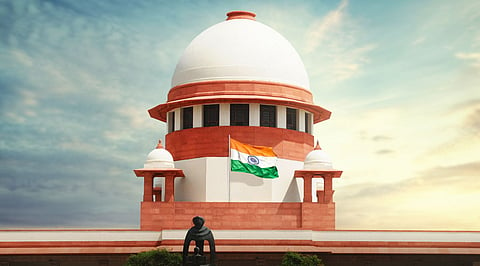

THE SUPREME COURT ON TUESDAY dismissed a plea by the National Commission for Protection of Child Rights (‘NCPCR’) challenging a Punjab and Haryana High Court ruling from 2022 which held that a 16-year-old Muslim girl could enter into a valid marriage under Muslim personal law and granted protection to the couple.
A Division Bench of Justices B.V. Nagarathna and R. Mahadevan noted the child rights body had no locus to file such an appeal.
“NCPCR has no locus to challenge such an order,” the Bench remarked, “If two minor children are protected by the High Court, how can NCPCR challenge such an order? It is strange that the NCPCR, which is meant to protect children, has filed this petition.”.
The counsel for NCPCR argued that the matter raised a substantial legal question: whether a girl under 18 could be considered legally competent to marry merely on the basis of personal law. The Court, however, rejected this contention, stating, “No question of law arises; you can challenge in an appropriate case.”
Other similar petitions by the Commission against High Court orders were also dismissed.
The 2022 High Court judgment had ruled that a Muslim girl who has attained puberty—presumed to be at the age of 15—was competent to marry under Muslim Personal Law. That order had been widely debated for appearing to clash with statutory provisions.
The NCPCR had argued that the ruling undermined the Prohibition of Child Marriage Act (‘PCMA’), 2006, a secular law that sets the minimum marriage age at 18 for women and 21 for men, and applies across communities. It also cited the Protection of Children from Sexual Offences (‘POCSO’) Act, which prohibits sexual consent by those under 18, to contend that marriages of girls aged 15–16 expose them to offences under POCSO.
Earlier, another Bench of the Supreme Court had directed that such High Court rulings should not be treated as precedents in other cases. Separately, the National Commission for Women (‘NCW’) too had approached the top Court seeking uniformity in the marriageable age of Muslim women with that of other communities, calling the puberty-based threshold arbitrary and discriminatory.
NCPCR contended that underage Muslim girls were being married in violation of statutory protections, with far-reaching consequences for their health, education, and rights. It maintained that personal law should not override secular child protection laws.
The High Court, however, had in 2022 granted protection to a 16-year-old Muslim girl and her husband, citing Muslim Personal Law and holding that she was competent to marry after attaining puberty. The couple had approached the High Court alleging threats from family members.
By dismissing NCPCR’s appeal, the Supreme Court effectively left the High Court’s ruling undisturbed in that particular case. But it also clarified that the present petitions were not the right forum to test the larger constitutional question of the interplay between personal law, the PCMA, and POCSO.
The issue of reconciling Muslim personal law with child protection statutes thus remains unresolved, though the Court signalled that the question could be considered in a more appropriate case.